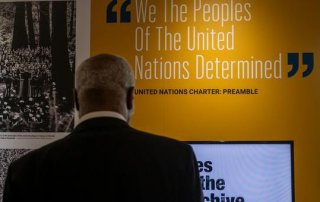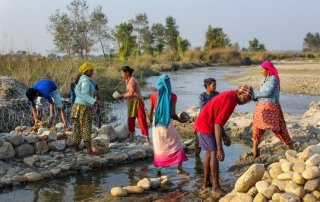Eighty years on, UN Charter marked by reflection, resolve – and a run
It wasn’t an average Thursday morning in Manhattan. In the early hours, UN diplomats (and UN News) hit the streets in their sneakers – from Times Square to East River – following a route that traced the shape of “UN@80”.
Millions remain invisible – but Asia-Pacific leaders pledge change by 2030
More than a decade after Asian and Pacific nations launched a campaign to ensure every life is counted, millions across the region still remain “invisible” – born, living, and dying without formal recognition.
Joint Press Release | Energy Access Has Improved, Yet International Financial Support Still Needed to Boost Progress and Address Disparities
Washington, New York, Paris, Geneva, Abu Dhabi, 25 June 2025 – Tracking SDG 7: The Energy Progress Report 2025 finds that almost 92% of the world’s population now has basic access to electricity Although this is an improvement since 2022, which saw the number of people without basic access decrease for the first time in a decade, over 666 million people remain without access, indicating that the current rate is insufficient to reach universal access by 2030.
$1 towards a girl’s education = $3 for the global economy: That’s how development works
Helping those with less isn’t charity – it’s a shared investment in a better future. Yet global development financing is under strain. An upcoming UN conference in Sevilla, Spain, aims to change that by mobilizing large-scale investment for a more just and sustainable world.
Sevilla conference on development financing shows optimism for multilateralism
It’s been 10 years since the Addis Ababa Action Agenda was established to support the implementation of the 2030 Agenda for Sustainable Development, the world’s roadmap for ending poverty, protecting the planet and tackling inequalities.
Energy access has improved, but more funding is needed to address disparities: WHO
Although nearly 92 per cent of the global population now has basic access to electricity, more than 666 million people still live without it, prompting the World Health Organization (WHO) to urge greater financial support [...]





